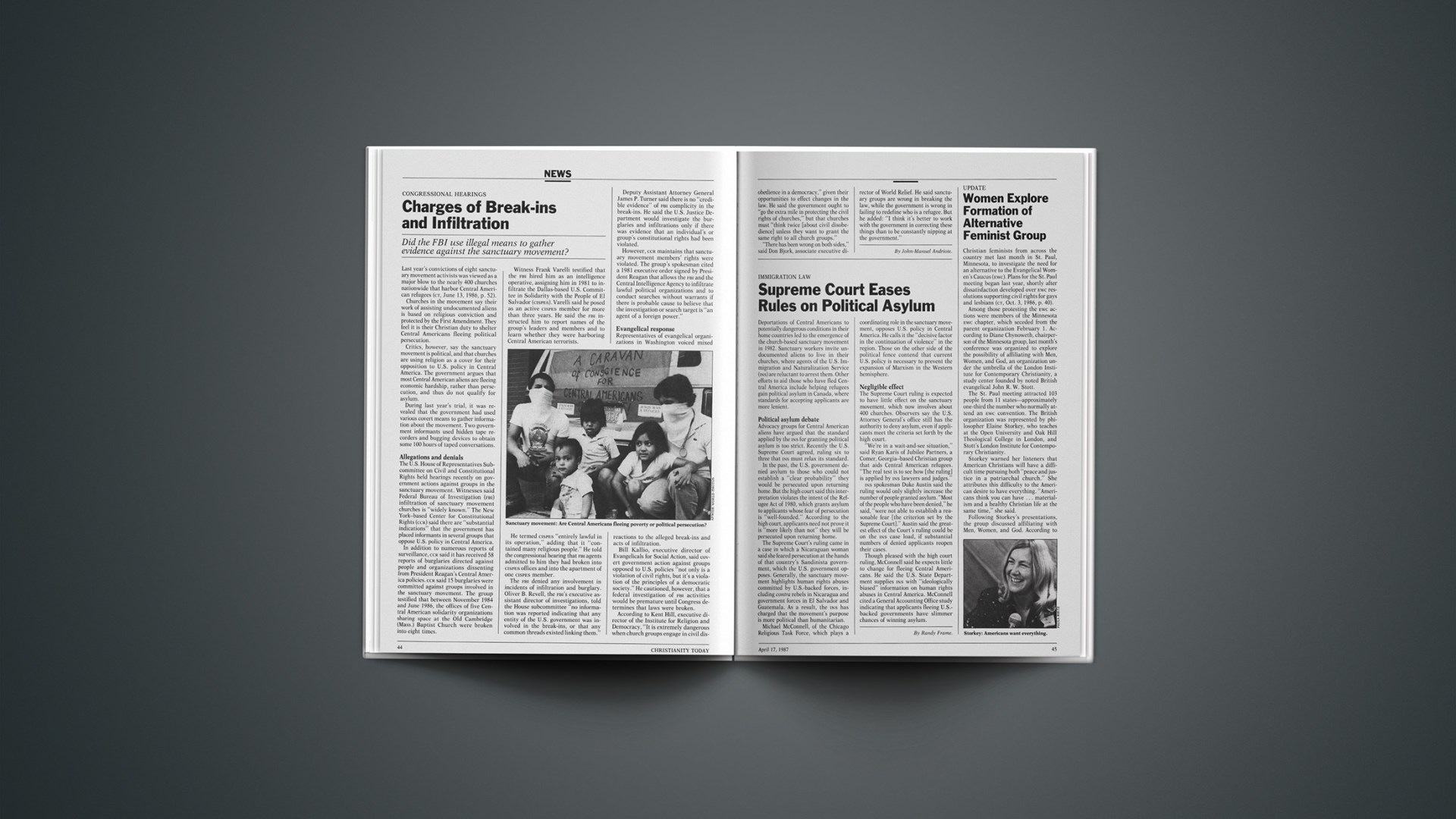Christian feminists from across the country met last month in St. Paul, Minnesota, to investigate the need for an alternative to the Evangelical Women’s Caucus (EWC). Plans for the St. Paul meeting began last year, shortly after dissatisfaction developed over EWC resolutions supporting civil rights for gays and lesbians (CT, Oct. 3, 1986, p. 40).
Among those protesting the EWC actions were members of the Minnesota EWC chapter, which seceded from the parent organization February 1. According to Diane Chynoweth, chairperson of the Minnesota group, last month’s conference was organized to explore the possibility of affiliating with Men, Women, and God, an organization under the umbrella of the London Institute for Contemporary Christianity, a study center founded by noted British evangelical John R. W. Stott.
The St. Paul meeting attracted 103 people from 11 states—approximately one-third the number who normally attend an EWC convention. The British organization was represented by philosopher Elaine Storkey, who teaches at the Open University and Oak Hill Theological College in London, and Stott’s London Institute for Contemporary Christianity.
Storkey warned her listeners that American Christians will have a difficult time pursuing both “peace and justice in a patriarchal church.” She attributes this difficulty to the American desire to have everything. “Americans think you can have … materialism and a healthy Christian life at the same time,” she said.
Following Storkey’s presentations, the group discussed affiliating with Men, Women, and God. According to Chynowyth, a number of participants expressed strong support for affiliation. One of the supporters, Kari Malcolm, author of Women at the Crossroads, said, “A gift—a full-blown organization, Men, Women, and God—has been dropped in our laps. I believe it came from the loving hands of a caring God.”
Participants formed a steering committee to explore a U.S. affiliation with Men, Women, and God. Catherine Kroeger, a classics scholar from St. Paul, was appointed chairperson. The committee will assess the organizational needs of women across the United States, particularly women in conservative evangelical churches, women who have left the church, and women from minority groups. A final recommendation is expected this month.
By David Neff, in St. Paul.










